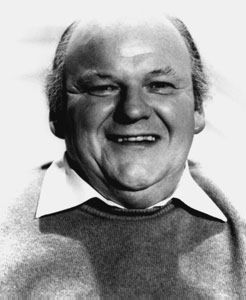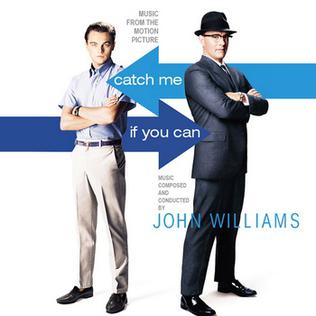This page is based on this
Wikipedia article Text is available under the
CC BY-SA 4.0 license; additional terms may apply.
Images, videos and audio are available under their respective licenses.

The Dave Clark Five were an English rock and roll band formed in Tottenham in 1957. In January 1964 they had their first UK top ten single, "Glad All Over", which knocked the Beatles' "I Want to Hold Your Hand" off the top of the UK Singles Chart. It peaked at number 6 in the United States in April 1964. Although this was their only UK #1, they topped the US chart in December 1965, with their cover of Bobby Day's "Over And Over". Their version of Chet Powers' "Get Together" reached number 8 on the UK Singles Chart retitled as "Everybody Get Together".

Catch Me If You Can is a 2002 American biographical crime film directed and produced by Steven Spielberg from a screenplay by Jeff Nathanson. The film stars Leonardo DiCaprio and Tom Hanks, with Christopher Walken, Martin Sheen, and Nathalie Baye in supporting roles.

Roy Mitchell Kinnear was an English character actor. He is known for his roles in films directed by Richard Lester; including Algernon in Help! (1965); Clapper in How I Won the War (1967); and Planchet in The Three Musketeers (1973), reprising the latter role in the 1974 and 1989 sequels. He is also known for playing Private Monty Bartlett in The Hill (1965), Henry Salt in the 1971 film Willy Wonka & the Chocolate Factory, and cruise director Curtain in Juggernaut (1974).

Henry Zuckerman, credited as Buck Henry, is an American actor, writer, film director, and television director. He has been nominated for an Academy Award twice, in 1968 for Best Adapted Screenplay for The Graduate and in 1979 for Best Director for Heaven Can Wait.
A catch-22 is a paradoxical situation from which an individual cannot escape because of contradictory rules or limitations. The term was coined by Joseph Heller, who used it in his 1961 novel Catch-22.

"A Well Respected Man" is a song by the British band The Kinks, written by the group's lead singer and rhythm guitarist Ray Davies, and originally released in the United Kingdom on the EP Kwyet Kinks in September 1965, but the song was released on the album Kinkdom in the United States. The song was also released as a single in the US and Continental Europe.
Catch Me If You Can is a 2002 film directed by Steven Spielberg.

A sea tractor is a motor vehicle designed to travel through shallow seawater, carrying passengers on a platform elevated above a submerged, tractor-like chassis. The sea tractor was most popular during the early 1930s, as a unique way to give scenic tours to patrons of waterfront hotels and resorts. In other applications, sea tractors were used merely as a ferry through shallow waters. Sea tractors are hardly used in present time – as boats, ferries, and other aquatic vessels often serve their function much more efficiently and comfortably.

William Finlay Jefferson Currie was a Scottish actor of stage, screen, and television. He received great acclaim for his roles as Abel Magwitch in the British film Great Expectations (1946) and as Balthazar in the American film Ben-Hur (1959).

"Catch the Wind" is a song written and recorded by Scottish singer-songwriter Donovan. It was released as a single in the United Kingdom on 12 March 1965 through Pye Records and a few months later in the United States through Hickory Records. The single was backed with "Why Do You Treat Me Like You Do?" on both the United Kingdom and United States releases.

Deadliest Catch is a documentary television series produced by Original Productions for the Discovery Channel. It portrays the real life events aboard fishing vessels in the Bering Sea during the Alaskan king crab, opilio crab and bairdi crab fishing seasons.

"Catch" is the name of a 1987 single by The Cure from their album Kiss Me, Kiss Me, Kiss Me. The single was not released in the US. It charted at #27 in the UK.
An Immortal is one of a group of fictional characters seen in the movies and series of the Highlander franchise. Since they are immune to disease and stop aging after becoming Immortals, they can live forever and die only when they are beheaded.

Hugh Thornton Walters was a British actor.
David de Keyser is an English actor. He was born in London.
Barbara Gillian Ferris is an English actress and former fashion model.

Catch Me If You Can: Music from the Motion Picture is the original soundtrack of the 2002 film of the same name, starring Leonardo DiCaprio, Tom Hanks, Christopher Walken, Martin Sheen and Amy Adams. The original score was composed and conducted by John Williams. The film was the twentieth collaboration between Williams and director Steven Spielberg.
Basil Kirchin was an English drummer and composer. His career spanned from playing drums in his father's big band at the age of 13, through scoring films, to electronic music featuring tape manipulation of the sounds of birds, animals, insects and autistic children".












